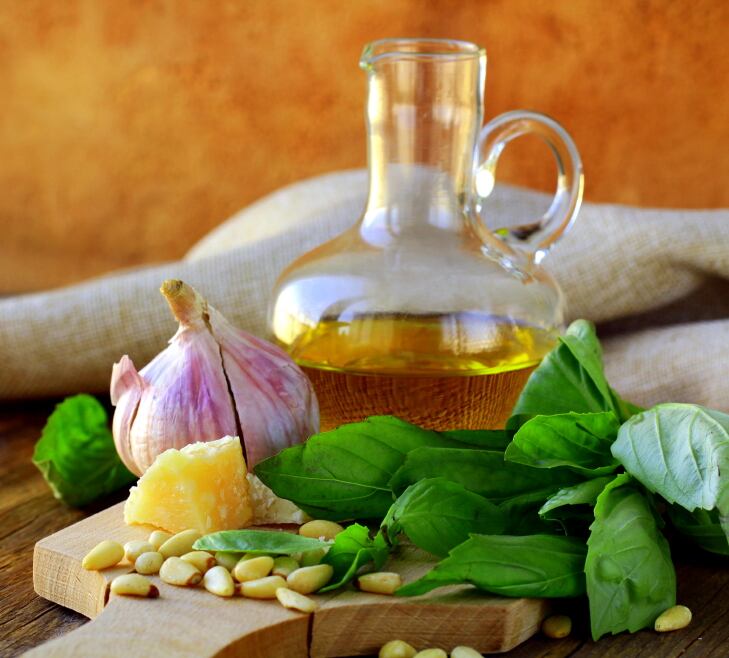Penny Kris-Etherton, PhD, RD, professor of nutrition at Penn State University and American Heart Association spokesperson, told FoodNavigator-USA she wasn’t surprised by the results of the Merieux NutriSciences study, which were in line with some “very old literature in field that reported those findings.” (Among them is a 2001 study, which showed that diets containing at least 5 to 10% of calories from polyunsaturated fatty acids from vegetable oils are associated with lower risk for heart disease.)
“Both olive and corn are good vegetable oils for lowering coronary heart disease risk overall,” she said. “This study shows the cholesterol-lowering effects of corn oil. It makes perfect sense with content of corn oil, which has polyunsaturated fatty acids, with potent cholesterol-lowering effect compared to the monounsaturated fats found in olive oil, and then it also has plant sterols with added benefits.”
For the study, a randomized, double-blind, controlled crossover clinical trial compared the effects of corn oil versus extra-virgin olive oil on lipoprotein lipids in 54 healthy men and women, finding that consumption of foods made with corn oil lowered LDL cholesterol by 10.9%, compared to extra virgin olive oil's 3.5% reduction. Total cholesterol decreased by 8.2% with corn oil, compared to 1.8% for extra virgin olive oil.
The findings were presented this week at the American Society for Nutrition's Advances & Controversies in Clinical Nutrition Conference and will be submitted for publishing in a peer-reviewed journal.
Results not surprising, but not widely appreciated
“We had done modeling in advance of the study to estimate the effects on LDL cholesterol of the differences between corn and extra virgin olive oil in both fatty acid—more polyunsaturated fatty acids in corn oil—and plant sterol contents—about four times more plant sterols in corn oil [135.6 mg/serving vs. 30.0 mg/serving for olive oil, according to USDA data],” lead researcher Kevin Maki, PhD, who is also chief science officer of Biofortis, told FNU.
“We estimated a difference of about 5.3% greater lowering with corn oil, and the actual difference observed was 7.4%. The prediction equations we used are subject to a fair amount of error, so the results are really in line with expectations. These differences in sterol and fatty acid composition are not widely appreciated, even by healthcare professionals such as dietitians,” he added.

Dr. Kris-Etherton said this is likely due to the extensive amount of research that’s been done on the benefits of olive oil.
“Extra virgin olive oil and even olive oil have been in limelight because they're the cornerstones of the Mediterranean-style diet, and there’s been so much research done with the Mediterranean diet. That’s why people think that olive oil is the best vegetable oil. It does have a lot of positive properties certainly, especially the polyphenol compounds in EVOO, which have beneficial effects on a lot of chronic diseases.”
The results could have implications for food manufacturers and consumers alike. Dr. Kris-Etherton noted that while a lot of food manufacturers are switching to oils high in high monounsaturated fat because they have greater shelf stability, the best solution for both manufacturers and consumers is to use and eat a mix of liquid vegetable oils to get the most benefit. “A good message to take from this study is to eat a variety of vegetable oils, and use them on basis of culinary characteristics.”
Study details
For the trial, funded by ACH Food Cos. Inc. and Pepsico, participants received four tablespoons of corn oil or extra virgin olive oil in the foods provided every day, consistent with the Dietary Guidelines for Americans. All foods were provided to the study participants as part of a weight maintenance diet.
The study compared the effects of corn and extra virgin olive oil on LDL cholesterol, total cholesterol, HDL cholesterol, non-HDL cholesterol, triglycerides and the total to HDL cholesterol ratio. Fasting blood samples, along with other clinical measurements, were taken from all participants during visits to the clinical study center before and after each treatment phase of the study.
